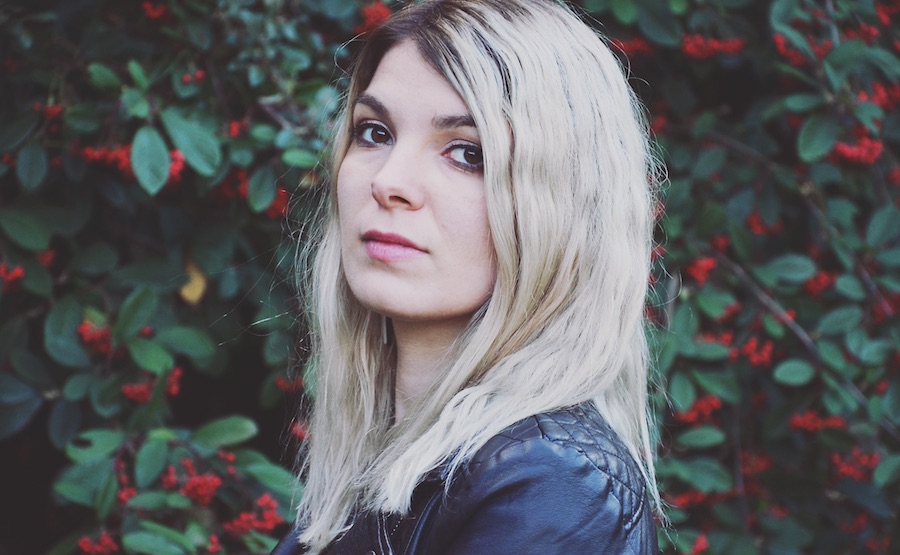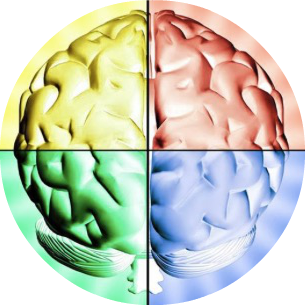The 4 Stages You Might Go Through as You Discover Your Introversion

After many years of overwrought self-analysis and a drawn out misunderstanding of my own needs, I now wear my self-awarded badge of introversion with honor. In fact, I’ve become fairly obsessed with all things personality related and have been known to bring up the MBTI incessantly — and sometimes inappropriately — in all sorts of contexts.
Sometimes I have to laugh at myself for this obsession. And I get varying degrees of flak for it from those with varying degrees of respect for the idea of personality typing. But for me, the revelation of where my energy comes from, and how it’s depleted, has had a pretty big impact on my relationship not only with other people but also with myself. It was only after I stopped fighting what I now understand to be my clearly introverted tendencies, and started validating my deep-rooted need for solo recharge time, that I found a balance in my life. This allows me to enjoy socializing when it serves me and withdraw to hibernate when necessary — even when the hibernation period extends longer than my extroverted friends understand.
 What’s your personality type? Knowing your type can help you leverage your natural strengths. Take the free test from our partner Personality Hacker.
What’s your personality type? Knowing your type can help you leverage your natural strengths. Take the free test from our partner Personality Hacker.
No introvert’s journey of self-discovery is going to look exactly the same, but in my case, I can break it down to four stages I went through as I learned about and ultimately embraced my introversion. Sometimes the lines got blurry, and I found myself confused, with no clue what it was I actually needed to get to my happy place. I think many introverts go through a similar journey before it all clicks. Can you relate to these four stages?
1. The “Clueless Introvert” Stage
Before the terms “introvert” and “extrovert” were splattered everywhere across the internet, I didn’t really connect the dots of what was going on inside my brain when I felt drained after too much “peopling.” Or why small talk grated on me so much — or why I was often quiet in big groups — even when my brain was buzzing with things to say.
I’m not talking about just needing a little alone time here and there either. When I lived with roommates, it got to the point where I would listen at my door and wait until the house went quiet to go in the kitchen and make something to eat or go to the bathroom. Though some of these people were my good friends — and some I may have partied with just the night before — when I woke up the next day, I couldn’t even face a run-in in the hallway with them until I felt ready to engage. I blamed these quirks on being shy or insecure, or on the bouts of depression I experienced from my teens up through my late twenties. But, as it turns out, it was more than that.
2. The “Introvert Playing Extrovert” Stage
I always felt a bit different, uneasy, and disconnected from the people around me. Though, as many introverts do, I hid it well.
I studied journalism in college and worked as a reporter for the university paper, which meant I was constantly dialing up people I didn’t know on the phone — something that gives me huge anxiety to this day — and constantly approaching random students around campus for comments for my stories. Somehow I made it work, but I had to psych myself up (in my own head, of course) each and every time I picked up the phone or headed out on my beat. It never felt natural, though I loved crafting stories and seeing my words in print once all the interviews were out of the way, and I could sit at my desk slinging paragraphs together. After college, as I continued to focus on finding myself, I also worked as a waitress, which entailed lots of small talk, a fair bit of bubbliness, and an income which quite literally depended on my ability to interact confidently with strangers day in and day out.
I didn’t realize it back then, but I was doing what a lot of introverts do: We subconsciously turn on an extroverted version of ourselves to make it through the day. In fact, I still do that now. As a teacher, I’m “on” all day in the classroom with my students, and “on” in the office during my lunch break with my chatty coworkers. Without fail, by the end of the day, I’m completely drained and feel a strikingly physical need to be alone, tucked away in my bedroom, daydreaming, as my depleted batteries recharge.
3. The “Introvert Finally Gets It” Stage
The difference now is I’m quite aware of what the sensation of being “on” means for me. The longer I’m around people — even if they’re people I enjoy — I slowly but surely lose steam. I also recognize it happens much more rapidly in big groups of people I don’t know well when there’s lots of awkwardly forced small talk (my least favorite type of interaction by far). It also happens in situations where my batteries have already gone dead and I’m in desperate need to charge up with some time alone, but I find myself being forced to interact anyway.
 Enter a Breathtaking Inner World
Enter a Breathtaking Inner World
The first coloring book with an introvert theme is here. Follow an introvert and her cat as they journey through quiet, forgotten places, battle “people” overload, and seek true connection. From the creator of Introvert, Dear. Learn more.
Though I think I’m usually pretty friendly, a good listener, and especially drawn to small group or one-on-one conversations, I have to keep in mind my ability to do all of that from a centered and receptive place hinges on the fact that I spend quite a bit of time on my own. Once I’ve reached my limit, the struggle is real, and there’s nothing to be done for it but to find a solo sanctuary. Typical retreats include my room after work, a date with myself in nature surrounded by greenery, or a cozy café on a rainy day. As I bask in the unparalleled freedom of being alone with my own thoughts, I can actually feel my energy reserves replenishing. Without fail, I find myself renewed and ready to re-enter the world of people again.
4. The “Unapologetic Introvert” Stage
My “aha!” moment was a simple one: It’s all about energy. Now that I have a better grasp on why I feel so drained after sustained or obligatory interaction, and I know what to do to get back to a happy, balanced state, I’ve come to appreciate both versions of myself: the happily charged social introvert in disguise, as well as the hidden-away, overexerted introvert who relishes her own company.
I am both sides of the coin, and both sides have value.
I cherish connecting with others, on my own terms, and that’s okay.
I give myself permission to play things by ear, because a social event that sounds great at the beginning of the week might seem tortuous by the end when I’ve been “on” for too many days in a row.
Because I need self-nourishment often, I keep my friends in the loop by being open — in fact maybe too open sometimes — about my introvert needs. And I talk a lot about what it means to be an introvert. The good ones get it, and are neither shocked nor upset if I cancel on them last minute because I just can’t. I’m basically always a “maybe.” However, I do try to be conscious of whether I’m just being lazy, because that happens, too, or if I really am running on empty and need to refuel.
By keeping an open dialogue, I hope to convey to the people I care about that it’s not them, it’s me. When I cancel, it doesn’t mean they are not important to me, that I don’t enjoy spending time with them, or even that they don’t invigorate me in some way when we connect. It’s just that I will be able to engage with them in a more complete and authentic way after I’ve recharged. That’s what matters to me the most.
Hi, my name is Cati. I’m an introvert, and I’m not hiding anymore.
Did you enjoy this article? Sign up for our newsletters to get more stories like this. ![]()
Read this: I Faked Being an Extrovert and It Led to Severe Depression
